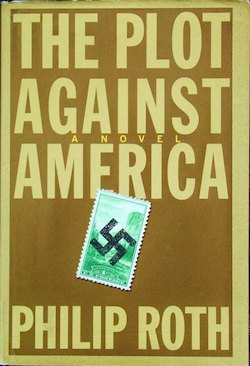Philip Roth, 1933 - 2018
"He's a fine writer," Jacqueline Susann once remarked of Philip Roth, "but I wouldn't want to shake hands with him." Susann was most likely referring to Roth's earlier, more sexually audacious work like Portnoy's Complaint. It's an understandable comment — Complaint is a book surrounded by a very particular kind of notoriety. It may have put Roth on the literary map, but if Roth continued to write horny little novels about sleazebag men throughout his career, we likely would have forgotten about him a long time ago.
The internet is currently reconciling with the news that Roth passed away tonight at the age of 85. The words "literary lion" are being thrown around a lot right now, and I'm sure that some self-important men who don't read much have declared him the Greatest American Writer of All Time. Lord knows that people who firmly believe in The Canon have spent the last two decades howling over the grave injustice that Roth never won the Nobel Prize in Literature. I expect the hyperbole to increase to a fever pitch over the next few days, just as I expect the takedowns to start manifesting in the usual contrarian outlets by midmorning tomorrow.
The truth is that Roth is a complicated figure. In his work, he thoroughly examined the dysfunctional tradition of masculinity in the late 20th century, but he was also thoroughly trapped by that same tradition. He satirized self-important old men, but he was a self-important old man. He wrote important work about the most important and most aggravating contradictions of modern American life, and he was a victim to those same contradictions.

But it is very hard to dispute that American Pastoral and, especially, The Plot Against America are brilliant novels. I haven't reinvestigated it recently, but I expect that the dystopian alternate-reality plot of Plot feels even more relevant in the time of Donald Trump than it did on its publication during the era of George W. Bush. I don't believe in the Great American Novel as an overarching concept, but I do believe that in those two books, especially, Roth wrote a pair of great American novels.
Tonight, Roth belongs to history. I don't know what will happen to his legacy in the years and decades and centuries ahead. But if I had to place a bet, I'd say that even if historians look back on his work with a certain disgusted air — even if they refuse to shake his metaphorical hand — they'll still be discussing and analyzing and, yes, enjoying his work for a good long while.